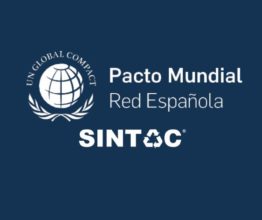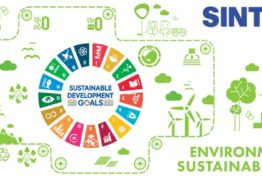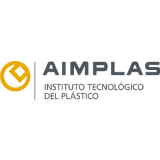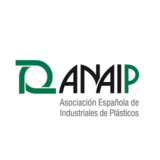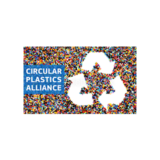Government accepts Royal Decree on Packaging and Packaging Waste
In an effort to tackle the growing waste problem and promote sustainability, the Government has accepted the Real Decreto de Envases y Residuos de Envases. This initiative seeks to establish measures to prevent and reduce waste, promote bulk food sales and encourage the use of recycled packaging. It also introduces the concept of Extended Producer Responsibility (EPR) to ensure proper management of packaging and packaging waste. In this blog, we will explore the objectives of this decree and how it will affect our society.
On December 27, 2022, Royal Decree 1055/2022 was approved, on packaging and packaging waste, by means of which Law 11/1997 that regulated these issues is repealed, This decree is approved by the Government as a comprehensive response to the problem of waste in our country. This measure demonstrates a serious commitment on the part of the authorities to address the environmental challenge we face.

For this, Royal Decree 1055/2022 establishes different measures that promote a transition towards a circular economy, favoring the reuse of packaging, its recycling or, ultimately, the revaluation of waste of containers.
Who does the Royal Decree on Packaging and Packaging Waste affect?
This decree affects several actors in society, among them are:
- Producers and manufacturers: Producers and manufacturers of goods and food are directly affected by this decree. They have a responsibility to design packaging that is more sustainable, reducing its environmental impact and promoting its recyclability. In addition, they must assume extended producer responsibility, ensuring that packaging is properly managed at the end of its useful life.
- Consumers: Consumers are also affected by the Royal Decree. It seeks to encourage changes in consumption patterns, promoting the choice of products with more sustainable packaging and the adoption of bulk purchasing practices. Consumers can also be encouraged to participate in selective collection and recycling programs, thus contributing to the reduction of waste.
- Shops and establishments: Shops and establishments that sell packaged products are also impacted by this regulation. They must adapt to the measures that promote the sale of food in bulk, offering attractive alternatives to consumers. They may also be required to implement separate collection and recycling systems at their facilities.
- Regulatory authorities and bodies: Regulatory authorities and bodies are responsible for implementing and enforcing the Royal Decree. They must establish clear policies, define quality and control standards, and supervise compliance with the measures by the different actors involved. In addition, they must provide information and education to the population to promote awareness and the adoption of sustainable practices
- Waste management companies: Companies dedicated to waste management are also affected by this decree. They must adapt their processes to face the new challenges posed by the management of packaging and packaging waste. This implies establishing efficient systems for the collection, classification, recycling and proper disposal of the materials used in packaging.
Objectives: Waste prevention and reduction:
One of the main objectives of the Royal Decree is the prevention and reduction of waste. It seeks to promote a change in consumption patterns, encouraging citizens to make more sustainable and responsible decisions regarding the packaging they use. Education and awareness will play a crucial role in this process, since it will seek to inform the population about more ecological alternatives and encourage responsible consumption practices.
This Royal Decree seeks to change consumption patterns: The decree seeks to promote a change in society’s consumption patterns, promoting more sustainable and responsible practices in relation to the packaging used. It seeks to make citizens aware of the importance of reducing waste generation and adopting more sustainable alternatives in their purchasing choices.

Promote the sale of food in bulk:
The Royal Decree also seeks to promote the sale of food in bulk as a way of reducing packaging waste. By encouraging this type of sale, the need for individual packaging is reduced and consumers are encouraged to bring their own reusable containers. This not only reduces waste generation, but can also result in financial savings for consumers.
Promote recycled packaging:
Another fundamental aspect of this Royal Decree is the promotion of the use of recycled packaging. It will seek to encourage manufacturers and distributors to use recycled materials in the production of packaging, thus reducing dependence on natural resources and the generation of waste. Likewise, the implementation of selective collection and recycling systems will be promoted to guarantee that the containers are correctly managed at the end of their useful life.

Extended Producer Responsibility (EPR):
Extended Producer Responsibility is a key concept within this Royal Decree. With EPR, producers become responsible for the management of the packaging and waste they generate, from its design to its proper disposal. This implies that producers will have to assume the costs and logistics associated with the collection, sorting, recycling and disposal of the packaging used in their products. This measure encourages shared responsibility between producers, consumers and authorities, and seeks to promote the circular economy and waste reduction.
The Royal Decree on Packaging and Packaging Waste marks an important step towards sustainability in our country. By setting clear targets for waste prevention and reduction, promoting bulk food sales, encouraging recycled packaging and implementing Extended Producer Responsibility, it seeks to change our consumption habits and ensure proper management of packaging and packaging waste. The collaboration of all the actors involved will be fundamental to achieve the success of this initiative and build a more sustainable future for the next generations.
